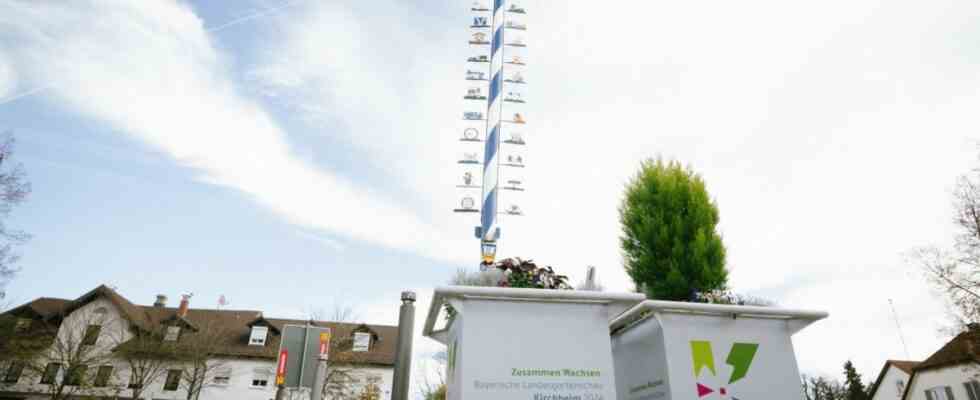A triad usually belongs to the postcard idyll of typical Bavarian town centers: church, inn, town hall. Kirchheim fulfills this cliché in an exemplary manner. The baroque church of St. Andrew dominates the view of the square, which is paved with small stones and lined with several bars. But the triad will not exist for long, because the municipal administration, which is currently still located in the town hall right next to the church, will be moving to the new quarter between Kirchheim and the Heimstetten district in just over a year. And time does not stand still in Kirchheim.
Cars and buses rush by almost continuously this morning, otherwise there is little going on in the town center. It’s not just the time. The community, like many others, is struggling with increasing numbers of shops dying and the centers becoming deserted. “I’m worried about our town center,” says Mayor Maximilian Böltl (CSU). In Kirchheim, too, the retailers are feeling what is noticeable everywhere: They are struggling with the competition from large agglomerates such as the shopping center in nearby Riem, but above all with online trading. The loss of sales caused by the pandemic has still not been overcome, and rising energy prices and rents are increasing costs.
Böltl explains that a report was prepared a long time ago on the question of who visits the town center and for what reason. The so-called main traffic generators, as it turned out at the time, were the town hall, the bank and the post office. If you have a new ID card issued, you might be tempted to stop off at the ice cream parlor across the street, according to logic. And if you withdraw money from the bank, you can invest it in a new book at the bookstore around the corner.
All that remains of the VR Bank branch is the ATM.
(Photo: Sebastian Gabriel)
The municipal administration can still be found in the town hall on Münchner Strasse. The other two magnets have already disappeared from the town center. A few customers still come through the automatic sliding doors of the former VR Bank, because the ATMs still work. However, the fact that the counters are now closed “hurts us a lot,” says Böltl. “It’s a big loss, especially for the elderly. Not everyone is doing online banking.” However, the municipality had no influence on the decision, emphasizes the head of the town hall. Now they are committed to keeping at least one ATM. In the future, however, this should be found elsewhere, possibly in the current town hall. There are already other considerations for the bank building: “We are currently in talks with various doctors who want to join forces there to form a medical center.”
In the former post office, the art space has established itself, which was actually only intended as an interim use.
(Photo: Sebastian Gabriel/)
Across the street you can see how creative solutions can bring life to the town centre. When the local post office closed a few years ago, the municipality entered into the lease and granted the art space a place to stay, an open meeting place for creative people that also offers courses on various topics. Originally it was only intended as an interim use, but the project has now become a local institution, as Böltl says. At the beginning of December, the art space celebrates its third anniversary.
The art space is a bad deal for the community
According to Böltl, the use is a negative business for the community, which is still worthwhile: “Otherwise the rooms would be completely empty.” According to the mayor, he is convinced that one must be open to non-commercial use in order to bring life back to the town centre. The currently unused premises next to the art room will soon be occupied by the table.
Although Böltl is concerned about the future of the Kirchheim center, he is also optimistic. The local development, among other things due to the large infrastructure project Kirchheim 2030, which also includes the new town hall, brings with it opportunities: With the residential developments being built near the town centre, Kirchheim will get many new citizens who, it is hoped, will also mean additional purchasing power. The mayor emphasizes the commitment of the community to create attractive opportunities in the center, but to keep the center alive, the help of the population is also necessary. Böltl appeals to the people of Kirchheim to support local trade: “As a society, we have to think about where we shop.”

